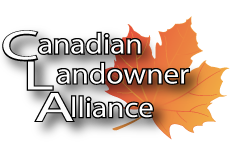With All Due Respect...
Written by Jamie MacMaster
My long-suffering wife, raised as she was in a loving household where the virtues of conformation were second only to Confirmation, despairs at my tendencies to go out of my way to "buck the system". She feels the cause is attributable to some lingering remnant of an unfulfilled childhood and she may well be on to something, because I must confess to deriving a childish delight from little matters, such as walking on public lawns that have a sign telling me not to do so and swimming beyond the plastic floats where I'm not supposed to tread water. It's just an instinctive thing – something along the lines of what a dog must feel when he baptizes his master's Goodyears: "Take that… Sir!"
It may even be genetics at work. Fifty years after the event my Dad derived great pleasure retelling this story about his regiment's arrival at a war-time British base. While checking out the facilities so to speak, he and his troop mates happened upon a single toilet out of twenty that sported a sign, "Out of Order, Do Not Use, By Order." Doubting Thomases the lot of them, and no great respecters of arbitrary authority, they decided to test the receptacle for themselves, and used it to the exclusion of all the others until parade time the next morning.
Even the Regimental Sergeant Major could scarcely keep his grin under control, and offered only a weak "Steady Men!" as the enraged shouts of the civilian maintenance types drifted across the parade square from the direction of the lavatory: "You filthy, fogging, Kineyedian, bawstads!" So much for Lavatory Authorities and their asinine notices.
But it's not so funny anymore, because the modern equivalents of that silly hand-printed sign are laws such as the Provincial Policy Statement on Land Use (PPS), The Clean Water Act, and the Endangered Species Act – each one targeting rural Ontario and guaranteed to produce the same results as that sign: defiance and unintended consequences that compound the original problem. I'll explain by using an example.
A few years ago several Glengarry Landowners made an unwanted appearance at a meeting hosted by an environmental consultant who was under contract with the local Conservation Authority. In cahoots with municipal planners, provincial agencies, and assorted environmental saviours, they had concocted a Natural Heritage Strategy that was intended to supplement the dictates of the PPS by "extending protection" to dozens of privately owned land features in Glengarry County. Not having a lot in common with this publicly-funded tea and crumpet set, and determined to leave it that way, Shawn McRae delivered our message in one sentence: "I'll tell you one thing, if you ever decide to "protect" my hardwood bush; I'll clear-cut every damned tree just to spite you bastards." Amen.
It is probably the time to start our engines. The Save Our Species Coalition (tax-payer-subsidized environmental charity groups) is so enthusiastic about Fibber McGuinty's new-and-improved version of the Endangered Species Act (ESA) - and the prospect of more private land confiscation - that they're running radio ads applauding the Ontario liberals, who will doubtless soon ram the Act through the legislature. One would almost suspect they were getting paid to cheer. The ads got me so curious that I had to have a look at the ESA myself… and I must say, it got me pretty excited too.
After cross-referencing my limited knowledge of local flora and fauna with the innumerable threatened and endangered species listed in the schedules, it quickly became apparent that a valid case could be made for declaring all of North Glengarry "species habitat" and therefore deserving of all the protections that laws can offer; and this one offers a lot. Why, it even provides our MNR with the authority to protect habitat that might be used by "extirpated species" – something that used to live here but no longer does. I think that elk might fall into this category, because Jacques Cartier mentioned seeing them in abundance along the shores of the lower St. Lawrence in the early 1500s. And in the event that a few ever wander back, your low-lying river-shore grasslands would suit them just fine – so your land is now their land, and quit fussing about compensation.
Shrikes need your old fields, silver shiners and eels need your ditches and spotted turtles and various mosses and weeds will require any damp spot that you have left over. You noticed I said "your"... not "my". And don't bother calling me to ask what I mean by that – I'm very busy doing some exterior renovations.




